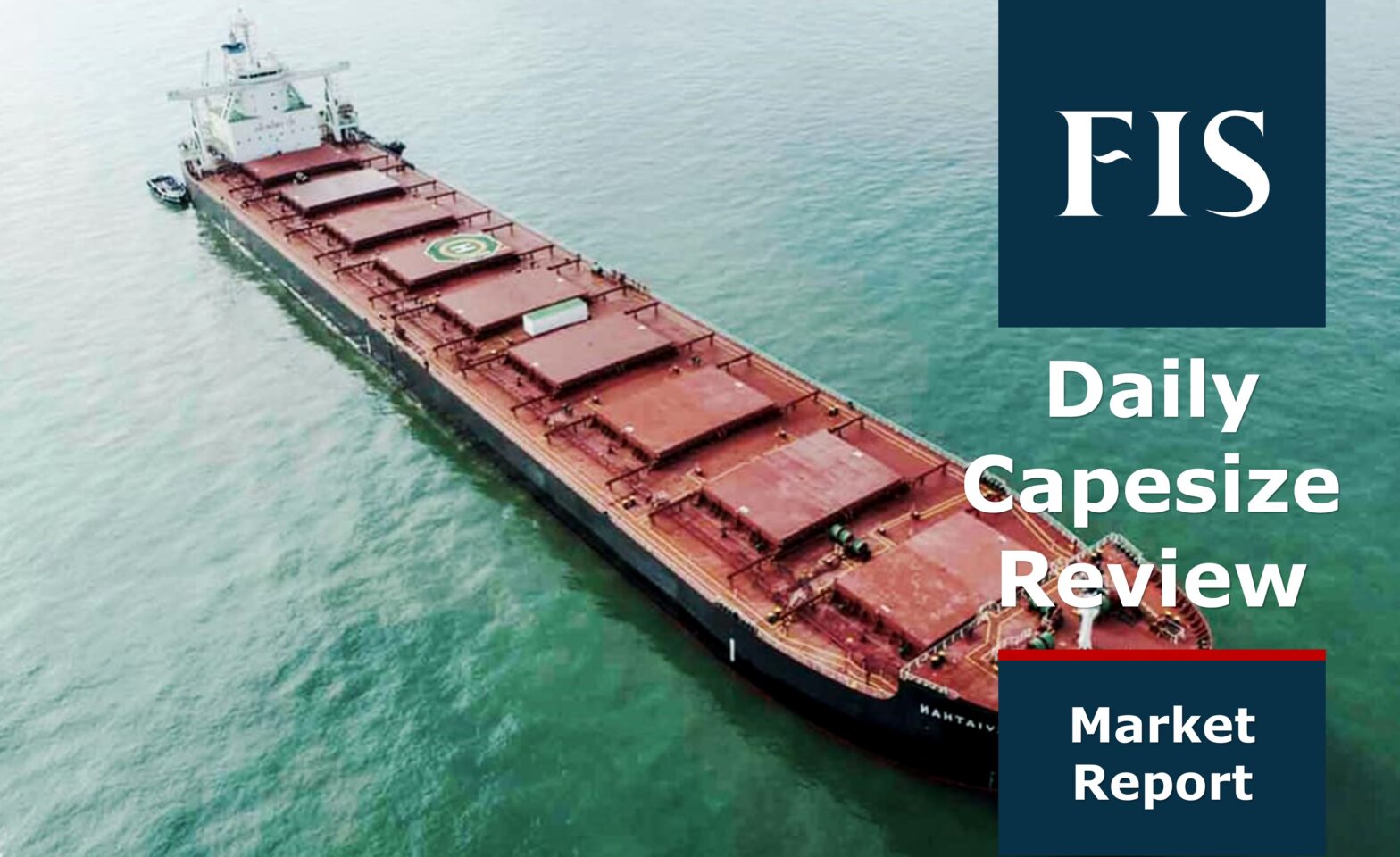Capesize freight rates fell further on the weak physical market outlook, as poor weather and stringent covid check in Chinese ports slowed shipping activities.
The Capesize 5 time charter average, then dropped by $2,440 day-on-day to $18,041 on Tuesday, after market selloff sessions.
The Baltic Dry Index (BDI) also decreased by $43 day-on-day, or down 1.66% day-on-day, to $2,546, due to softening freight rates.
More vessel supply amid covid checks and bad weather off China
Freight rates were softened over fast covid virus spread in China that market worried that it would lead to more lockdowns and disrupted logistics.
Apparently, there had been already stringent covid checks being implemented in the ports that resulted longer durations for unloading and loading operations.
Moreover, the unfavorable weather off China had caused navigation problems and disrupted shipping schedules and delays.
More shipowners also kept their vessels in the Pacific market in expectation of better steel demand in China as peak construction season approached. Hence, the many vessels put downward pressures on rates, as owners were reluctant to ballast them out of the Pacific.
Bunker prices rebound with crude resurgence
The bunker prices went on with the second wind of crude rally, as the price of VLSFO gained by $17/mt to $897.50/mt in the port of Singapore.
The crude market volatility followed the EU indecision on whether to sanction Russian energy products for its invasion of Ukraine. So far, Germany seemed to disapprove the oil embargo, though it had reached deal with Qatar recently to diversify its gas imports.
In the meantime, OPEC and US shale producers seemed unlikely to plug in the supply gap left by Russia, as they rejected to boost outputs and kept output as per planned previously.
